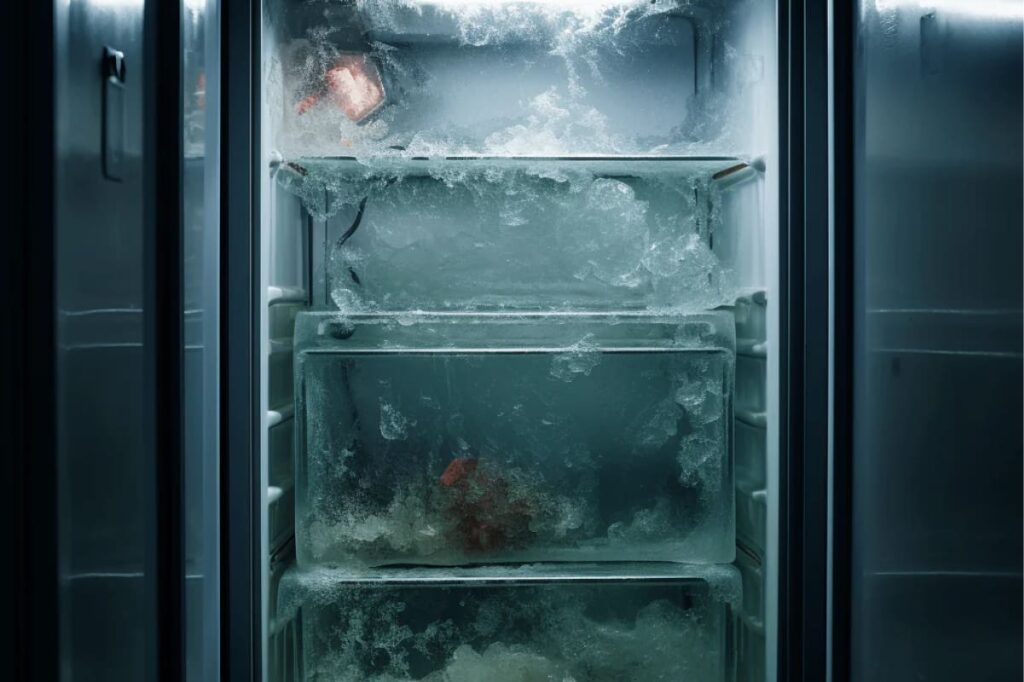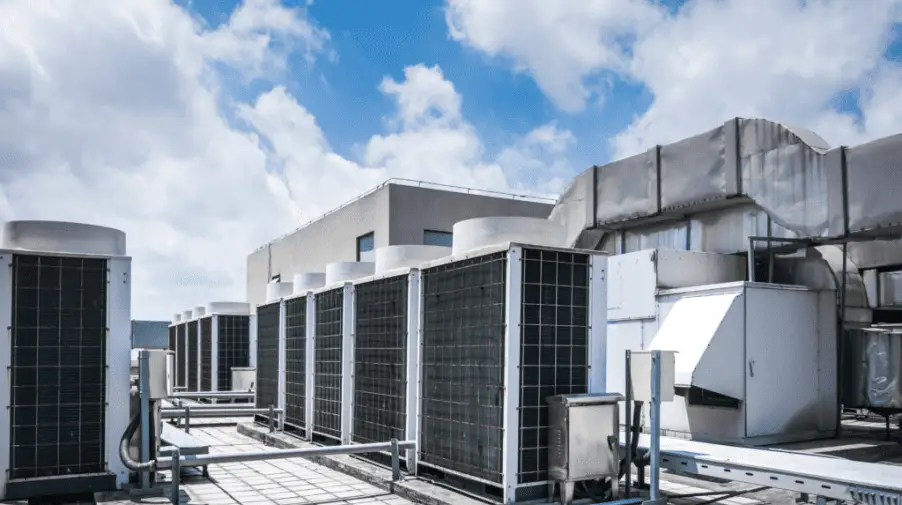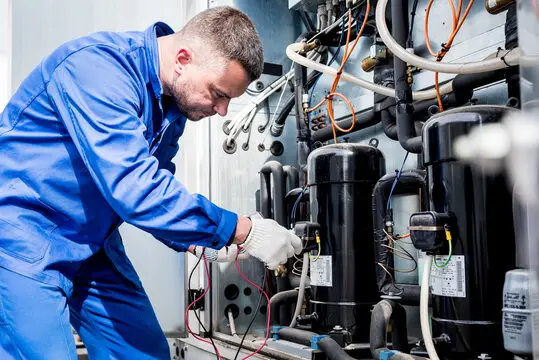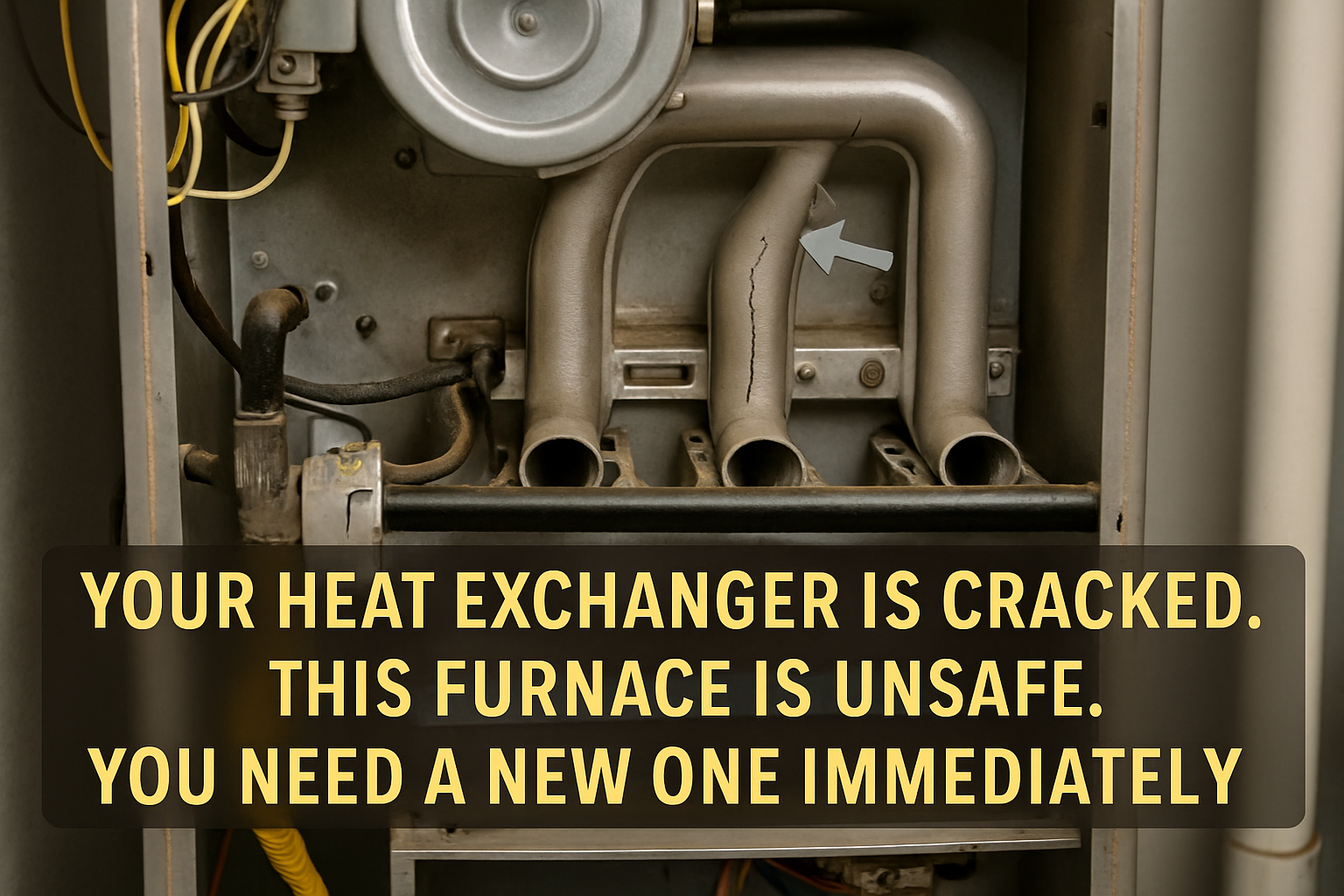Commercial refrigerators are indispensable for businesses in various industries, ensuring the safety and quality of perishable products. However, like any mechanical equipment, these units can face issues that compromise performance. Understanding common commercial refrigeration issues and employing effective troubleshooting techniques can save time, money, and inventory. Here’s a detailed guide to addressing typical problems with commercial refrigerators.

8 Common Issues With Commercial Refrigerators
1. Temperature Fluctuations
Maintaining consistent temperatures is crucial for preserving perishable goods. Fluctuations can result from:
- Malfunctioning thermostats
- Improper door seals
- Inadequate airflow
Effects: Food spoilage, reduced product quality, and potential health risks.
2. Inadequate Cooling
When a commercial refrigerator fails to maintain desired temperatures, common culprits include:
- Compressor failure
- Refrigerant leaks
- Dirty condenser coils
Impacts: Jeopardized freshness and safety of stored products.
3. Excessive Frost or Ice Build-Up
Ice accumulation can reduce airflow and cooling efficiency. Causes include:
- Faulty defrost systems
- Damaged door gaskets
- Improper product loading
Solution: Regular defrosting and addressing root causes.
4. Water Leaks
Leaks often indicate:
- Clogged drain lines
- Damaged water supply connections
- Faulty gaskets
Risks: Mold growth, corrosion, and structural damage.
5. Unusual Noises
Noises such as buzzing, rattling, or banging could signify:
- Worn fan motors
- Loose components
- Compressor issues
Warning: Ignoring unusual noises can lead to significant system damage.
6. Faulty Door Seals
Damaged seals allow cold air to escape, leading to:
- Increased energy consumption
- Reduced cooling efficiency
Prevention: Regular inspection and replacement of worn seals.
7. Electrical Issues
Tripped breakers, faulty wiring, or malfunctioning controls can disrupt refrigerator operations.
Outcome: Sudden shutdowns, temperature inconsistencies, and system malfunctions.
8. Compressor Failure
The compressor is the heart of the refrigeration system. Failure can result from:
- Overheating
- Refrigerant leaks
- Mechanical wear
Action: Timely detection and professional repair or replacement.
10 Steps Guide for Commercial Refrigeration Troubleshooting
Step 1: Check the Power Supply
- Ensure the unit is plugged into a working outlet.
- Check for tripped breakers or blown fuses.
Step 2: Inspect Thermostat Settings
- Verify that the thermostat is set to the correct temperature.
- Adjust as needed and allow time for stabilization.
Step 3: Monitor Temperature Levels
- Use a thermometer to measure internal temperatures.
- Compare readings to recommended standards.
Step 4: Check Door Seals
- Inspect for damage, gaps, or wear.
- Replace faulty seals to ensure energy efficiency.
Step 5: Clean Condenser Coils
- Turn off power and use a soft brush or vacuum to clean the coils.
- Remove dust, debris, and grease buildup.
Step 6: Inspect Evaporator Coils
- Check for frost or ice buildup.
- Address issues like faulty defrost timers or heaters.
Step 7: Listen for Unusual Noises
- Identify sources of noises and repair or replace affected components.
Step 8: Inspect Refrigerant Levels
- Check for adequate refrigerant levels.
- Address leaks or system issues with professional help.
Step 9: Check for Water Leaks
- Inspect drain lines, water supply connections, and other components.
- Clean drain pans and unclog lines to prevent water accumulation.
Step 10: Consult Manufacturer Documentation
- Refer to the manual for model-specific troubleshooting tips.
Advantages of Proactive Commercial Refrigeration Maintenance
Preventative care is essential to avoiding common problems and ensuring reliable operation. A commercial refrigeration maintenance checklist helps businesses:
- Enhance Performance: Regular cleaning and inspections improve efficiency.
- Avoid Costly Repairs: Early detection of issues prevents major breakdowns.
- Extend Equipment Lifespan: Routine servicing ensures longevity.
- Reduce Downtime: Well-maintained units minimize operational disruptions.
- Ensure Food Safety: Proper functioning protects stored goods.
Don’t let refrigeration problems disrupt your operations. Contact Four Elements Service today for reliable maintenance, repair, and troubleshooting services. Let us help keep your refrigeration systems running at peak performance!
What are common issues that affect commercial refrigerators?
Common issues include temperature fluctuations, inadequate cooling, excessive frost or ice build-up, water leaks, unusual noises, faulty door seals, electrical problems, and compressor failure.
How can I troubleshoot temperature fluctuations in a commercial refrigerator?
Check for malfunctioning thermostats, improper door seals, and inadequate airflow, as these can cause temperature fluctuations, leading to food spoilage and reduced quality.
What are some signs that a commercial refrigerator is not cooling properly?
Signs include inconsistent internal temperatures, food not staying fresh, and increased energy consumption, which may indicate compressor failure, refrigerant leaks, or dirty condenser coils.
How do I address excessive frost or ice build-up in a commercial fridge?
Regularly defrost the unit, inspect and repair faulty defrost systems, damaged door gaskets, and ensure proper product loading to prevent ice accumulation that hampers cooling efficiency.
What maintenance steps can prevent common refrigeration problems?
Routine cleaning of condenser coils, inspecting door seals, checking refrigerant levels, listening for unusual noises, and consulting manufacturer documentation for model-specific troubleshooting can help prevent issues.




